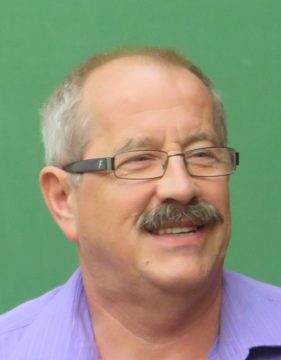Attila Katona has been a member of the History Department of the Berzsenyi Dániel Teacher Training College since 1987. From 2009 to 2013 he was Head of the Institute of History, later Acting Head of the Institute of History and Law, and since January 2014 Head of the Library-Informatics Institute and the Institute of History and Social Sciences. Since 2014, he has been Deputy Academic Dean of the Berzsenyi Dániel Faculty of Teacher Education, and Acting Dean since 2016. In 2017, he was Head of the Centre for Humanities, and until 31 December 2020, Head of the Department of History.
His research interests include 19th and 20th century Hungarian history, in particular the role and tragedy of Judaism. In the last decade, another area of his research has been the modern history of the city of Szombathely.
His main areas of interest are the analysis of local political processes, as well as certain aspects of social history and the world of political cults. His writings have been published partly in institutional and partly in departmental publications (Partes Populorum Minores Alienigenae), in local journals (Vasi Szemle, Vasi Helytörténeti és Honismereti Közlemények) and in independent collections of studies (ACC).
He has participated in historical events in the county. He has been involved in the organisation and programmes of the Holocaust Memorial Days, which have been introduced since 2001.
As an expert, he has been involved in the preparation of several film series and films, writing scripts and organising exhibitions. Since the summer of 2013 he has been one of the founders of the Genius Savariensis Free University, since 2019 he has been a member of the board of trustees of the Savaria Historical Carnival Public Benefit Foundation and since 2020 he has been a member of the editorial board of the Vasi Szemle.
